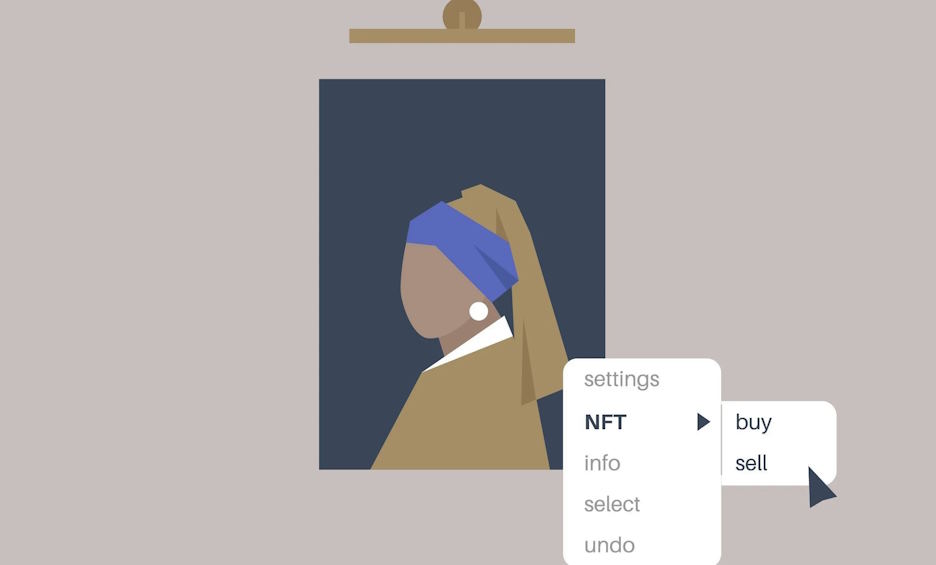Auction Houses Embrace Cryptocurrency: Traditional Auctions Meet Digital Payments

At the core of this convergence lies the revolutionary concept of cryptocurrencies, powered by the technology of blockchain. Cryptocurrencies, led by Bitcoin and Ethereum, have ushered in an era of secure, decentralized transactions that transcend geographical boundaries and eliminate intermediaries. This innovative financial mechanism has disrupted the status quo, offering unprecedented benefits such as enhanced security, reduced transaction fees, and greater financial inclusion. As the auction world seeks to harness these advantages, a profound transformation is underway. Traditional auction houses, long rooted in history, are now boldly venturing into the digital realm, embracing cryptocurrencies to create seamless, transparent, and borderless auction experiences.
Cryptocurrencies in Auctions: Embracing Innovation
Early Adoption Stories
The integration of cryptocurrencies into the realm of auctions marks a revolutionary turning point, showcasing the dynamic nature of both the auction and digital finance industries. Pioneering this transformative journey, the first auction houses to accept cryptocurrencies embarked on a path less traveled. These trailblazers shattered conventional norms, setting the stage for a new era of auction transactions. Despite initial skepticism, their bold move was met with a mix of challenges and resounding successes. Navigating uncharted waters, they faced concerns surrounding price volatility, regulatory compliance, and participant education. However, their commitment to innovation paid off, paving the way for a wave of acceptance within the auction community.

Expansion to Diverse Cryptocurrencies
Bitcoin (BTC) and Ethereum (ETH) were the first cryptos to gain acceptance in the auction world, owing to their widespread recognition and established credibility. However, as the cryptocurrency landscape flourished, auction houses quickly diversified their accepted currencies, embracing a myriad of tokens beyond the traditional giants. This diversification not only increased accessibility for a wider range of participants but also showcased the adaptability of the auction industry. Moreover, the rise of Non-Fungible Tokens (NFTs) introduced a groundbreaking dimension to art auctions. NFTs, which represent unique digital assets, found their significance in art and collectible auctions, transcending geographical confines and providing artists with novel revenue streams.
Advantages of Cryptocurrency Integration: Unlocking a New Era in Auctions
Global Audience and Accessibility
The integration of cryptocurrencies into the auction landscape has ushered in a new era of global accessibility. By breaking down geographical barriers, auction houses can now seamlessly connect with participants from every corner of the world. Traditional auctions often limited participation due to complex currency conversions and international transaction fees. However, with cryptocurrencies as the medium of exchange, these constraints vanish. This newfound accessibility not only broadens the potential audience for auction houses but also allows international bidders and sellers to engage effortlessly, enriching the diversity of perspectives and items on offer.

Security and Fraud Prevention
One of the most significant advantages of cryptocurrency integration lies in its inherent security features. The immutable nature of transaction records on the blockchain ensures a tamper-proof record of every bid and payment. This transparency serves as a robust safeguard against fraud and manipulation, instilling confidence in both buyers and sellers. By mitigating fraudulent activities that have historically plagued auctions, cryptocurrency integration bolsters the integrity of the entire auction process, attracting a more discerning and trusting clientele.
Streamlined Payment Process
The conventional auction payment process often involves intricate currency conversions and prolonged settlement times, causing friction and delays. Cryptocurrencies revolutionize this aspect by offering faster transactions and near-instant settlement. Participants can bid, win, and settle transactions in a matter of moments, eliminating the need for complex financial intermediaries. Additionally, the reduction of currency conversion complexities enhances the overall efficiency of the auction process, making it more convenient and appealing to a diverse range of participants.
